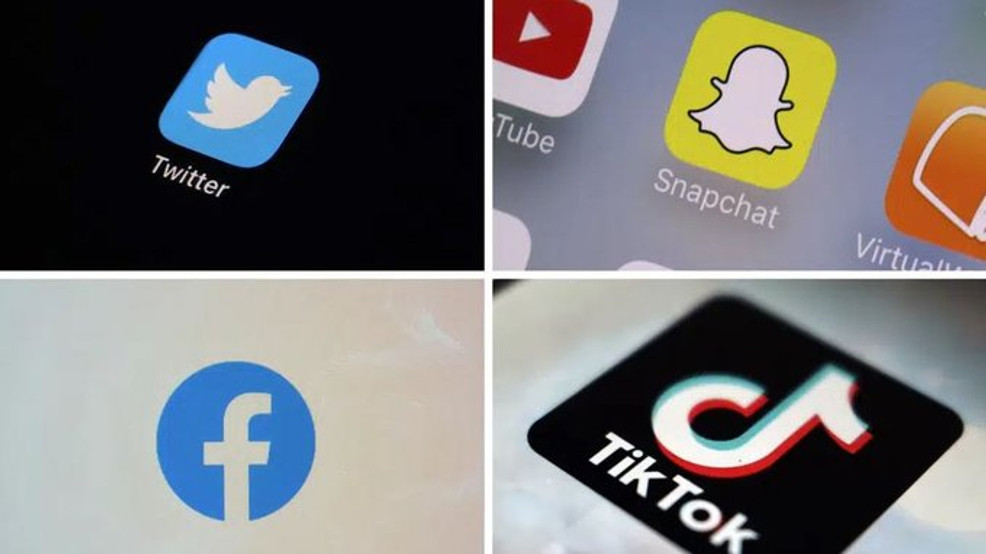
MYRTLE BEACH, S.C. (WPDE) — The way we talk about mental health has come a long way with more people confident to be open and honest about their feelings and mental state than seemingly ever before.
However, professionals warn that not everyone taking part in the ongoing conversation about mental health is someone you should rely on for a diagnosis. ABC15 spoke to multiple counselors along the Grand Strand who are seeing children and teens come in to treat mental disorders they don’t have, thanks to social media.
I’m glad we’re talking about this because it’s so common,” licensed professional counselor supervisor Kenza Haddock said.
Haddock works at Oceanic Counseling Group and said more and more she’s seeing young people who have self-diagnosed a mental disorder because of what they see online.
With TikTok or other social media, someone can just very easily make a video and say ‘Hey, if you’re going through or if you’re experiencing these symptoms, that means you have ADHD,'” she said. “‘Or you have anxiety, or you have depression, or you’re bipolar.’
Erin Collins, a licensed counselor at Good Vibes Therapy Center in Myrtle Beach, is seeing it too.
TRENDING: California real estate firm acquires Myrtle Beach hotel for ‘higher-end’ housing
“They want to diagnose themselves with Autism Spectrum Disorder, Trauma Disorders or Personality Disorders from social media,” Collins said.
The problem – these videos can be misleading, even with good intentions.
“It’ll point to criteria that does meet a certain diagnosis, but there’s so much overlap when it comes to diagnosing a [mental disorder] that it’s imperative for a professional to actually give you that diagnosis than to actually do it yourself,” Collins said.
Case in point, a recent study by the University of British Columbia found more than half of the 100 most popular videos on TikTok about ADHD contained misleading information…which is leading to a whole host of problems.
“It creates so much anxiety in the person and it can have very negative effects in their mental health,” Haddock said.
For one, Haddock said the content in and of itself can be harmful.
They type ‘Do I have anxiety’ and then they go down a rabbit trail,” Haddock said. “And now they truly are giving themselves anxiety, because they think they have anxiety.
Meaning whether or not a young person does have a mental disorder, these posts and videos can begin to shape their way of thinking.
“Especially for teenagers,” Collins said. “Since there’s such a need for identity and wanting to know who they are, when you give a label, whether it’s positive or negative, their mind automatically clings to it.”
And doing so gets in the way of allowing someone to heal in the way they truly need to.
LOCAL: ‘You Burger Believe it Week’ kicks off at Broadway at the Beach
“It leads to mismanagement of symptoms,” Haddock said. “Because let’s just say, if someone has bipolar, the treatment is not the same as anxiety disorder. The treatment for depression is not the same as borderline personality, and so it leads to a mismanagement of symptoms which can lead to a worse state.”
Finally, if they do seek treatment, convincing a teen or child they don’t have what they’ve self-diagnosed can be a challenge.
It’s fairly difficult because a lot of those diagnoses require a self-report,” Collins said. “So the information that they’re providing on the self-report can be skewed because they want that to be the diagnosis.
“Oh let me tell you, it takes several sessions to help someone unlearn a self-diagnosis that they have given themselves,” Haddock said. “Because they have already done research by the time they come to us…and we have to teach them ‘Hey no this is not what you have, this is what’s going on with you.'”
Both Collins and Haddock emphasize, that if someone in your family thinks they have a specific mental disorder, check in with someone IRL (in real life), not online.
Just get the diagnosis from a professional,” Haddock said. “Or at least get a confirmation from a professional.
If you or someone in your family is concerned about their mental health, there are resources available at the state and national level.
This post was originally published on this site be sure to check out more of their content







